#multicultural
Text
Sri Lankan Fairies and Senegalese Goddesses: Mixing Mythology as a Mixed Creator
[Note: this archive ask was submitted before the Masterpost rules took effect in 2023. The ask has been abridged for clarity.]
@reydjarinkenobi asked:
Hi, I’m half Sri Lankan/half white Australian, second gen immigrant though my mum moved when she was a kid.
My main character for my story is a mixed demigod/fae. [...] Her bio mum is essentially a Scottish/Sri Lankan fairy and her other bio mum (goddess) is a goddess of my own creation, Nettamaar, who’s name is derived from [...] Wolof words [...]. The community of mages that she presided over is from the South Eastern region of Senegal [...] In the beginning years of European imperialism, the goddess basically protected them through magic and by blessing a set of triplets effectively cutting them off from the outside world for a few centuries [...]
I was unable to find a goddess that fit the story I wanted to tell [...] and also couldn’t find much information on the internet for local gods, which is why I have created my own. I know that the gods in Hinduism do sort of fit into [the story] but my Sri Lankan side is Christian and I don’t feel comfortable representing the Hindu gods in the way that I will be this goddess [...]. I wanted to know if any aspect of the community’s history is problematic as well as if I should continue looking further to try and find an African deity that matched my narrative needs?
I was also worried that having a mixed main character who’s specifically half black would present problems as I can’t truly understand the black experience. I plan on getting mixed and black sensitivity readers once I finish my drafts [...] I do take jabs at white supremacy and imperialism and I I am planning to reflect my feelings of growing up not immersed in your own culture and feeling overwhelmed with what you don’t know when you get older [...].
I’m sorry for the long ask but I don’t really have anyone to talk to about writing and I’m quite worried about my story coming across as insensitive or problematic because of cultural history that I am not educated enough in.
Reconciliation Requires Research
First off: how close is this world’s history to our own, omitting the magic? If you’re aiming for it to be essentially parallel, I would keep in mind that Senegal was affected by the spread of Islam before the Europeans arrived, and most people there are Muslim, albeit with Wolof and other influences.
About your Scottish/Sri Lankan fairy character: I’ll point you to this previous post on Magical humanoid worldbuilding, Desi fairies as well as this previous post on Characterization for South Asian-coded characters for some of our commentary on South Asian ‘fae’. Since she is also Scottish, the concept can tie back to the Celtic ideas of the fae.
However, reconciliation of both sides of her background can be tricky. Do you plan on including specific Sri Lankan mythos into her heritage? I would tread carefully with it, if you plan to do so. Not every polytheistic culture will have similar analogues that you can pull from.
To put it plainly, if you’re worried about not knowing enough of the cultural histories, seek out people who have those backgrounds and talk to them about it. Do your research thoroughly: find resources that come from those cultures and read carefully about the mythos that you plan to incorporate. Look for specificity when you reach out to sensitivity readers and try to find sources that go beyond a surface-level analysis of the cultures you’re looking to portray.
~ Abhaya
I see you are drawing on Gaelic lore for your storytelling. Abhaya has given you good links to discussions we’ve had at WWC and the potential blindspots in assuming, relative to monotheistic religions like Christianity, that all polytheistic and pluralistic lore is similar to Gaelic folklore. Fae are one kind of folklore. There are many others. Consider:
Is it compatible? Are Fae compatible with the Senegalese folklore you are utilizing?
Is it specific? What ethnic/religious groups in Senegal are you drawing from?
Is it suitable? Are there more appropriate cultures for the type of lore you wish to create?
Remember, Senegalese is a national designation, not an ethnic one, and certainly not a designation that will inform you with respect to religious traditions. But more importantly:
...Research Requires Reconciliation
My question is why choose Senegal when your own heritage offers so much room for exploration? This isn’t to say I believe a half Sri-Lankan person shouldn’t utilize Senegalese folklore in their coding or vice-versa, but, to put it bluntly, you don’t seem very comfortable with your heritage. Religions can change, but not everything cultural changes when this happens. I think your relationship with your mother’s side’s culture offers valuable insight to how to tackle the above, and I’ll explain why.
I myself am biracial and bicultural, and I had to know a lot about my own background before I was confident using other cultures in my writing. I had to understand my own identity—what elements from my background I wished to prioritize and what I wished to jettison. Only then was I able to think about how my work would resonate with a person from the relevant background, what to be mindful of, and where my blindspots would interfere.
I echo Abhaya’s recommendation for much, much more research, but also include my own personal recommendation for greater self-exploration. I strongly believe the better one knows oneself, the better they can create. It is presumptuous for me to assume, but your ask’s phrasing, the outlined plot and its themes all convey a lack of confidence in your mixed identity that may interfere with confidence when researching and world-building. I’m not saying give up on this story, but if anxiety on respectful representation is a large barrier for you at the moment, this story may be a good candidate for a personal project to keep to yourself until you feel more ready.
(See similar asker concerns here: Running Commentary: What is “ok to do” in Mixed-Culture Supernatural Fiction, here: Representing Biracial Black South American Experiences and here: Am I fetishizing my Japanese character?)
- Marika.
Start More Freely with Easy Mode
Question: Why not make a complete high-fantasy universe, with no need of establishing clear real-world parallels in the text? It gives you plenty of leg room to incorporate pluralistic, multicultural mythos + folklore into the same story without excessive sweating about historically accurate worldbuilding.
It's not a *foolproof* method; even subtly coded multicultural fantasy societies like Avatar or the Grishaverse exhibit certain harmful tropes. I also don't know if you are aiming for low vs high fantasy, or the degree of your reliance on real world culture / religion / identity cues.
But don't you think it's far easier for this fantasy project to not have the additional burden of historical accuracy in the worldbuilding? Not only because I agree with Mod Marika that perhaps you seem hesitant about the identity aspect, but because your WIP idea can include themes of othering and cultural belonging (and yes, even jabs at supremacist institutions) in an original fantasy universe too. I don't think I would mind if I saw a couple of cultural markers of a Mughal Era India-inspired society without getting a full rundown of their agricultural practices, social conventions and tax systems, lol.
Mod Abhaya has provided a few good resources about what *not* to do when drawing heavily from cultural coding. With that at hand, I don't think your project should be a problem if you simply make it an alternate universe like Etheria (She-Ra and the Princesses of Power), Inys (The Priory of the Orange Tree) or Earthsea (the Earthsea series, Ursula K. Le Guin). Mind you, we can trace the analogues to each universe, but there is a lot of freedom to maneuver as you wish when incorporating identities in original fantasy. And of course, multiple sensitivity readers are a must! Wishing you the best for the project.
- Mod Mimi
#asks#multiracial#multicultural#south asian#sri lankan#senegalese#west african#identity#representation#worldbuilding#fantasy#mythology#folklore#fairies#deities#adoption#identity issues#mixed experiences#coding
535 notes
·
View notes
Text
HOW CHRISTIANITY SUPPORTS MULTIRACIAL, MULTICULTURAL DEMOCRACY
'The Bible doesn't mention abortion or gay marriage, but it goes on and on about forgiving debt, liberating the poor, and healing the sick' — This pastor perfectly explained how the values expressed in Christianity can support a multiracial, multicultural democracy instead of right-wing extremism (via jamestalarico on TikTok)
#christianity #religion #democracy
#us politics#news#nowthisimpact#Instagram#2024#James Talarico#texas#christianity#religon#multiracial#multicultural#democracy#videos#now this#the bible#abortion#gay marriage#debt forgiveness#us healthcare#us health system#for profit healthcare#health insurance#drug prices#feed the hungry#house the homeless
303 notes
·
View notes
Link
In today’s new Longreads essay, Montserrat Andrée Carty writes about family and identity, growing up around different languages and cultures, and eventually embracing (and loving) her name over time.
We seek to become the truest version of ourselves, but what if there isn’t one true version, but multiple? Like father, like daughter, there are two versions of me.
At 5, I spoke all these languages fluently. Today, I only speak two of them, but understand all of them in some way, as they still live inside me.
Read her beautiful personal essay on Longreads.
299 notes
·
View notes
Text


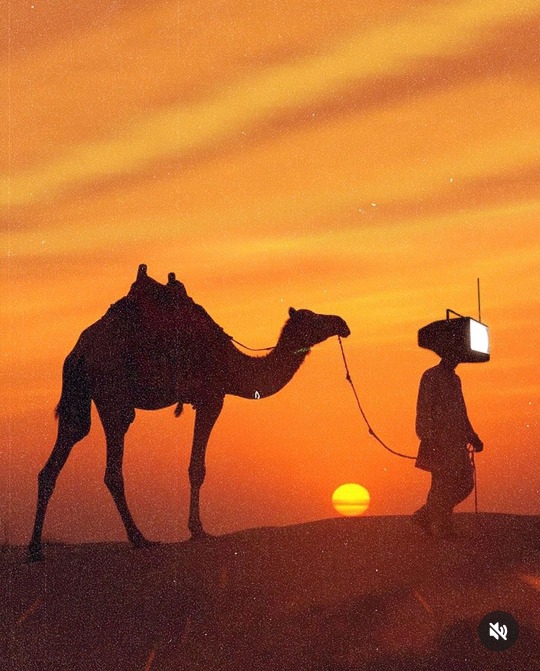
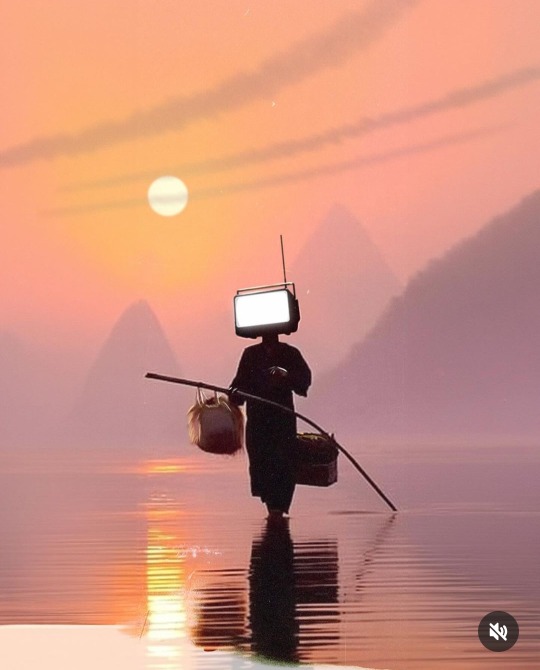

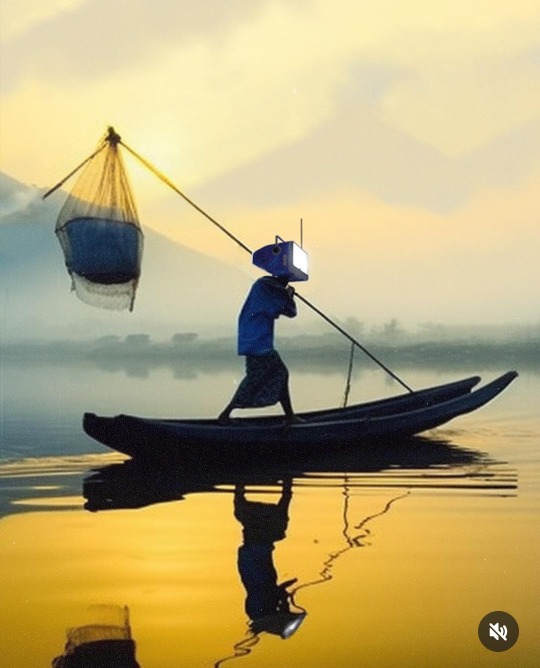




By koneya_art
#nestedneons#cyberpunk#cyberpunk art#cyberpunk aesthetic#cyberpunk artist#art#cyberwave#scifi#symbol#surreal#multiverse#multicultural#pop surrealism#surrealist#surrealism#pop surreal art#surrealist art#digital art#retro future#retrowave#retro aesthetic
147 notes
·
View notes
Text
This book is an exile's book. For objective reasons that I had no control over, I grew up as an Arab with a Western education. Ever since I can remember, I have felt that I belonged to both worlds, without being completely of either one or the other [...] Yet when I say "exile" I do not mean something sad or deprived. On the contrary belonging, as it were, to both sides of the imperial divide enables you to understand them more easily.
— Edward W. Said, Culture and Imperialism.
Follow Diary of a Philosopher for more quotes!
#Edward W Said#Culture and Imperialism#Book quotes#lit quotes#literature quotes#social studies#philosophy quotes#philosophy#politics#dark academia#quote#quotes#academia#gradblr#studyblr#chaotic academia#exile#tck#third-culture-kid#third culture kid#multicultural
10 notes
·
View notes
Text
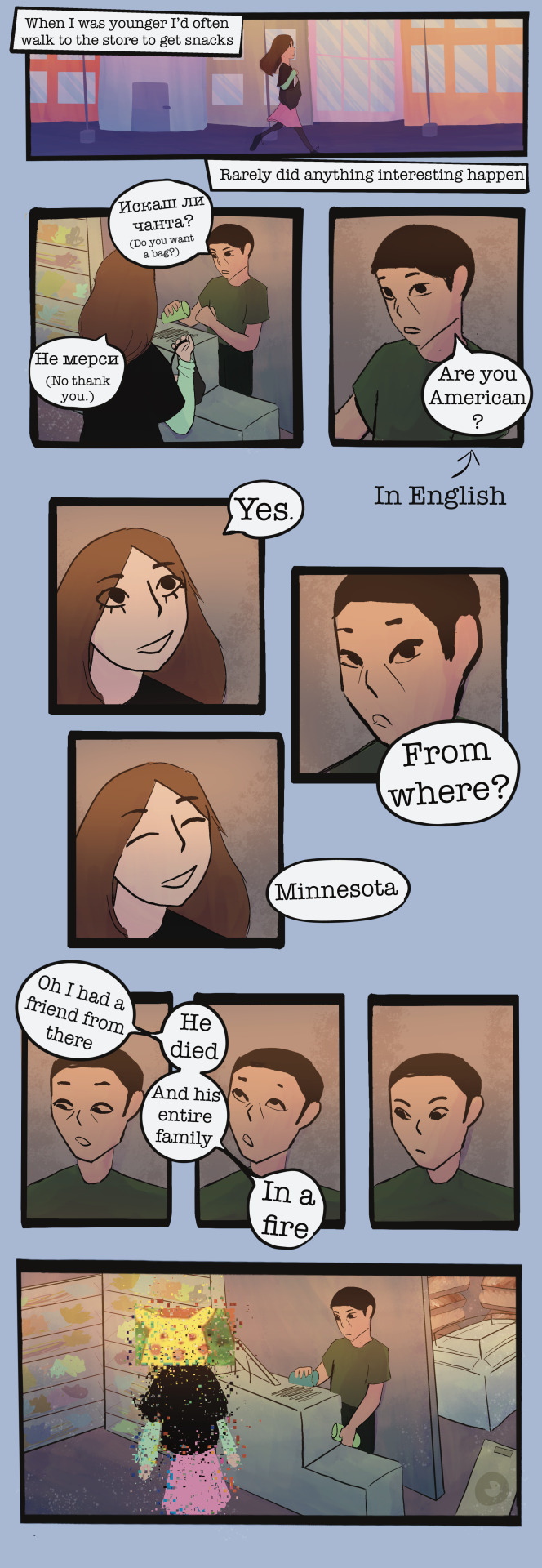
flashback to that time a cashier recognized I had an American accent.
#art#original art#digital art#artists on tumblr#Comic#bulgarian artists#american artists#multicultural
14 notes
·
View notes
Text
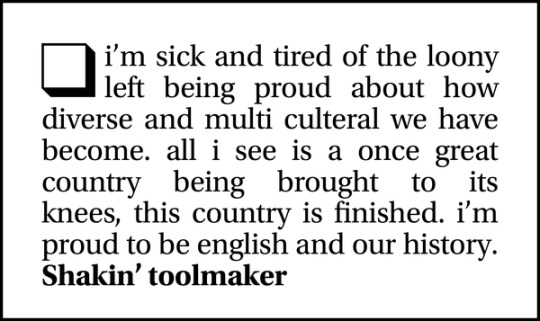
“Multi culteral”
#Daily Star#English#Multicultural#Sorry#Multi culteral#SPEEK ENGLISH#SPEEK R LANGWICH#So proud of being English#You can’t even be bothered to spell things correctly#One great country#Finished#Ruined forever#Because of the FOREIGNS
8 notes
·
View notes
Text




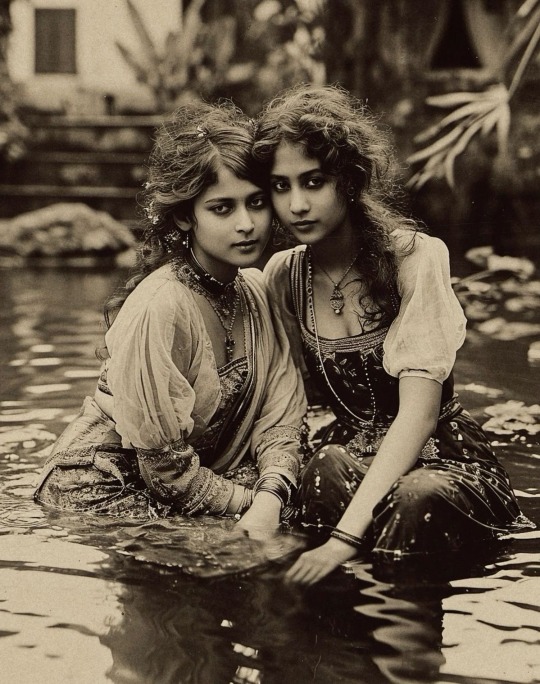
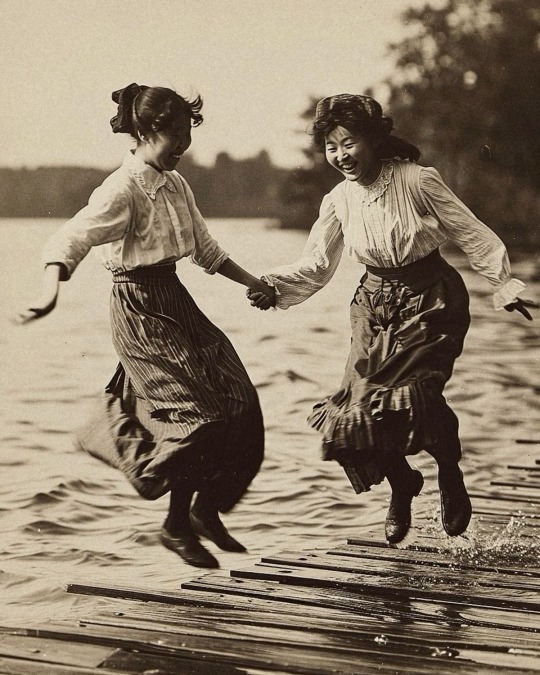

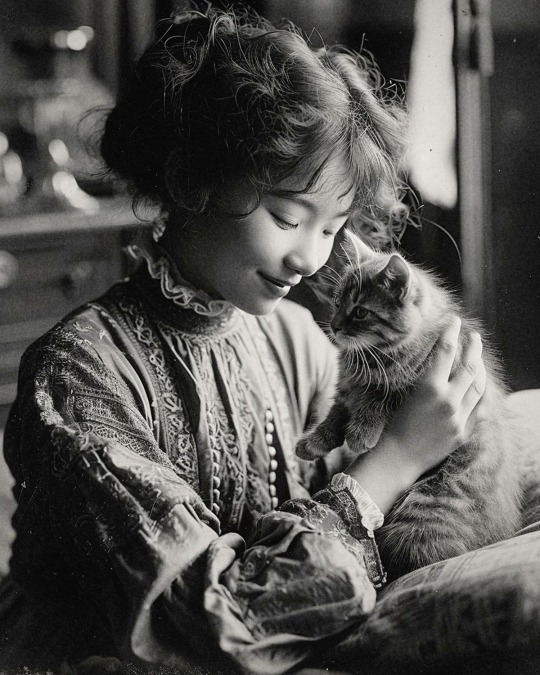
Edwardian photographs of young women who never existed — beautiful all the same *ੈ✩‧₊˚
#newsies#ao3 stuff#moodboard#victorian#edwardian#new york#aesthetic#multicultural#midjourney#photography#vintage#antique#girlhood#women#love#turn of the century#gilded age#belle epoque#retro
8 notes
·
View notes
Text
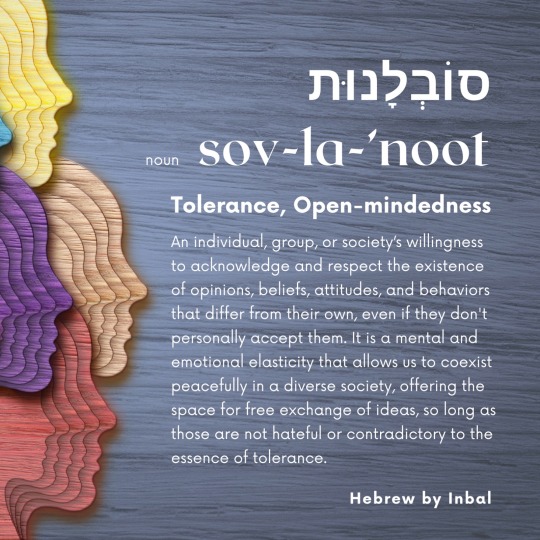
Growing up in Israel, a land that's an incredible mosaic of cultures, religions, and viewpoints, has given me a unique vantage point on tolerance and open-mindedness.
In this small but immensely diverse country, you find an entire range from Orthodox to secular Jews, Christians, Muslims, Druze, Bedouins, and many others living side by side. And let me tell you, it's not always a rose garden.
We have our struggles, our tensions, but at the same time, there's this amazing cultural richness that comes from such diversity.
I've learned that tolerance isn't just about coexisting; it's about understanding and embracing the human tapestry around us.
It's the curious conversations you have with your Arab neighbor about their Ramadan traditions.
It's the way secular and religious communities come together in times of need.
Open-mindedness here is not just a virtue; it's an inherent part of the Israeli landscape.
When you're open to understanding others' deeply ingrained beliefs and customs—even if you don't adopt them—you're creating a platform for dialogue, collaboration, and even friendship.
In Israel, tolerance and open-mindedness are often challenged, no doubt. But it's in these very challenges that their importance becomes crystal clear.
We are a small nation with a large footprint in the world's consciousness, often under a microscope for our politics and conflicts.
However, on a person-to-person level, we embody a fascinating blend of tolerance and open-mindedness that I wish more people could experience firsthand.
This aspect of Israeli culture has taught me that even when there are deep divides, there's always a bridge—a human bridge—that can bring us closer together.
#open minded#tolerance#hebrew#jewish#learnhebrew#hebrewbyinbal#language#israel#hebrew langblr#jew#torah#trending#diversity#multicultural#love#peace#acceptance#langblr#langblog#humanity#human rights#stand with israel#israeli#language learning#jewish tumblr#jew tag
15 notes
·
View notes
Text
Got what is probably my favourite cook book today. It's called The Ellis Island Immigrant Cookbook by Tom Bernardin. It's a collection of recipes from relatives (most commonly descendents) of immigrants or at time immigrants themselves who went through Ellis Island along with a blurb from the person submitting it and where they were originally from.
#ellis island#nyc#cooking#home cooking#home baking#baking#multicultural#ellis island immigrant cookbook#tom bernardin
10 notes
·
View notes
Text
Can You Worship Gods from Multiple Pantheons?
youtube
Personally I think syncretism is acceptable and in no way disrespectful IF, and this is a big if, you have studied the traditions you use in their separate contexts and can confidently and with historical accuracy note where each portion of your practice is coming from (including what is historically founded and what might be UPG based). This becomes especially important in a group context because new practioners don't always have the foundation nessicary to differentiate for themselves and may become very confused and mixed up. When you can not properly identify the separations in tradition is where things could end up 'disrespectful.'
Take the wheel of the year as an example. Is there anything wrong with celebrating the Celtic fire festivals AND the solar holidays? absolutely not. Is there anything inherently disrespectful about recognizing a Celtic deity on a solar holiday or perhaps a Hellenistic deity on Lughnasadh? no, not inherently. It is when you don't KNOW that perhaps Hestia has absolutely nothing to do with Lughnasadh and think that recognizing her is PART of Lughnasadh/"lammas" tradition that things become appropriative and disrespectful.
#deity worship#deity work#multicultural#syncretism#cultural appropriation#witchcraft#witchblr#paganblr#Youtube#lammas and lughnasadh are not the same thing
22 notes
·
View notes
Text
Representing Biracial Black South American Experiences…Through a White/Asian Mixed Race Character in Europe
@colombinna asked:
I have a YA story that's in very early development - pre-alpha, if you will. For now what I have developed is the characters: one of the MCs is a biracial asian queer girl (her dad is thai-american and japanese, her mom's white), she has a medium/dark brown skin, and lives in a very white context in a fictional European country. The contact she has with her extended family is limited to phone calls and regular visits because her dad moved from the US to said fictional European country.
I'm a biracial black queer girl myself, living in a very white community in South America, my extended black family also lives in a different place, and I'm taking a lot of my experiences of being not white and queer whilst living in white communities into her story (the feeling of not belonging, the impostor syndrome, standing out as one of the only POC kids in class, etc) and thinking back to what I've heard asian friends and classmates say about their experiences in the same school/community context as mine. But I want to know how different her experiences as a dark-skinned asian girl would differ from mine and my friends' in a similar context (white community, small number of other asian people - and POC in general - in the social circles, and limited contact to her extended family), and what experiences could make sense if the character was biracial black like myself, but won't if she's biracial asian.
Why not write a biracial Black girl if those are the experiences you want to represent?
This MC is straddling, like, 3 different cultures. Having multiple immigrant identities in not-Europe is not the same experience as being Black in South America; while both are complex minority experiences, there are too many differences in intersections and histories to compare. Not to mention, it really depends on what European culture(s) you’re basing your not-Europe on.
I think you’ll find that the written result will ring much more genuine and rich in depth if you either translate your experiences more directly or pick a more narrow focus, instead of assuming that there is a universal for racism and colorism against biracial people that is transferable across contexts. Because there isn’t. There can be overlaps, but if you’re looking to cover the entire range of What It’s Like in general, it won’t work.
This isn’t to say that people can’t use other identities to write about specific experiences of their own, but in this case you need to think about what story you want to tell and what your reasons are. Marika’s commentary will go more into when and how this can be done effectively.
Also, if the point is to make her a dark-skinned Asian, as a white/asian mix myself, I implore you: why must you make her 1/4 Japanese and 1/2 white? Even with the Thai ethnicity thrown in, Thai people very much range in skin tone and have their own domestic issues with colorism. It’s not impossible for dark-skinned examples of your MC’s ethnic makeup to exist, but still I don’t recommend it for two reasons:
It's going to make researching people whose experiences fit that much more difficult. Most experiences of colorism, othering, and other forms of discrimination that mixed white asians tend to face are completely different from mixed race asians who tend to have darker skin & features.
There's enough Japanese & white mixed Japanese rep in the Asian rep sphere as is. Consider that this individual could be mixed Asian (not Japanese) with something else (not white)!
But again, think over your motivations. I’ll spare you the copy/paste of our Motivations PSA, but re-read it and consider. Why do you wish to write a mixed Asian character to tell the story of your experiences as a mixed Black individual instead of a mixed Black character? What does it add to the story? Is it an effective vessel for the experiences you want to convey?
~ Rina
I think Rina brings up some good points here: I’m not hearing a lot of specificity in your query. As you doubtless know firsthand, the more intersectional and complex an identity, the more of a chance the identity may come with unexpected baggage and nuances that fly in the face of what is common sense for less intersectional identities. This can make writing such characters challenging just because there is so much choice on which identity themes to emphasize.
I once spent about 15 minutes explaining to a person the thought process I used to determine when I could wear jeans depending on which country I was living in as a mixed race person who is perceived as different things in different places. It might seem trivial, but it’s actually very important to me for the purposes of identity, safety and gender presentation, so I personally think it’s interesting. But will my readers think a character’s multi-page internal monologue on whether or not to wear jeans is especially compelling? Does the writer-version of me want to research the version of myself musing on my specific jeans conundrum to that extent? Or do I want to talk about other things related to attire a lot of other people would relate to? I think those are all YMMV questions, but hopefully, they provide some perspective that will help you be intentional about how you might want to tackle something potentially very time-consuming.
When I say intentional, I mean that when covering a complex identity with which you are peripherally familiar, it will always be more effective and easier to use it to tell a specific story extremely clearly than to be extremely broad in scope and try to include almost everything about your own experiences, especially because some of those experiences might not be as relevant for your character’s background as they are to yours.
One of my favorite childhood picture books is written and illustrated by a Nikkei writer-illustrator team. The book is titled Ashok by Any Other Name (link). The story features a desi child growing up in the US who wishes he had an American name his friends and teachers wouldn’t think was strange. It covers how being othered for his name makes him feel, and how he copes with that feeling. Speaking as someone both Japanese and desi, I think through the plot device of names perceived by the majority of Americans as foreign, this book aptly shows how many immigrant/diaspora creators are capable of relating to the pressures of assimilation experienced by other immigrant, even if the creator, the audience and the story’s subject’s backgrounds all don’t completely overlap 100%.
There will be aspects of your Blackness, mixed identity, skin color, sexuality and living in a local community lacking diversity as a member of many minority groups that you will find resemble/ resonate with the experiences of mixed-race, Japanese individual in a Europe-themed setting, and I think any story that leans into those themes will be considerably easier for you to research. In other words, instead of asking us “How does my experience differ?” I would approach this issue by deciding what narrative you want to show about your own experience and then research the specific contexts within which your desired story overlaps with elements of mixed-race Japanese experiences.
- Marika.
#japanese#mixed race#biracial#black#black woman#asian women#multicultural#multiracial#pov#identity#representation#asks
388 notes
·
View notes
Text
Okay drunken hot take but: It's the epoch of multiculturalism, of globalism, of the internet. It's almost a sign of entitlement not to make at least a small effort to learn another language. Like, I still count myself as thoroughly monolingual but I can at least pronounce, understand, and figure out through context clues some basic Spanish and German, just by virtue of growing up partly in LA and taking a couple years of German in High School. There's a whole world of culture out there, thousands of years of it from billions upon billions of different people, you're doing your mind and your heart a disservice if you constrict yourself to one language only.
7 notes
·
View notes
Text
L'enrichissement culturel attaque la police en masse à Bradford, les policiers sont contraints de s'enfuir. La société multiculturelle du Royaume-Uni est un véritable échec !
#united kingdom#royaume uni#multicultural#multiculturalism#immigration#migrants#violence#violences#agressions#agression#police
11 notes
·
View notes
Text
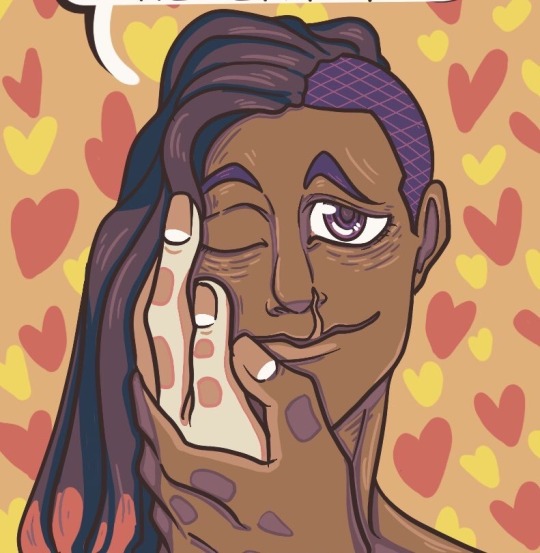
How I wish I had a marketing team… *AHEM* BAYBEHSS, check out my collab comic about an anxious sweetheart and swanky sweetheart navigating a few important discussion while neither is on the same page!
Icthyo Mixup is the current webtoon i’m publishing on my website at www.magicalmashup.com !
———————————————
💜Catch a Faye Baye outside💜
www.magicalmashup.com (Read my comics)
Ladytmusings.art (Portfolio)
patreon.com/Lady_T_Musings (support and exclusive art)
Instagram.com/lady.t.musings (wips & finished)
www.tiktok.com/@ladytmusings (wips & experimental)
Facebook.com/ladytmusings (updates & art)
@ladytmusings.bsky.social (art & thoughts)
youtube.com/@lady-t-musings (story time, art, and musings)
5 notes
·
View notes
Text

“So how’s yer da handling his first Christmas after the divorce?”
#Daily Mail#Christmas#multicultural#Diverse#Transgender#Of course#Inclusive#Calm down Mark#Have a Baileys
16 notes
·
View notes